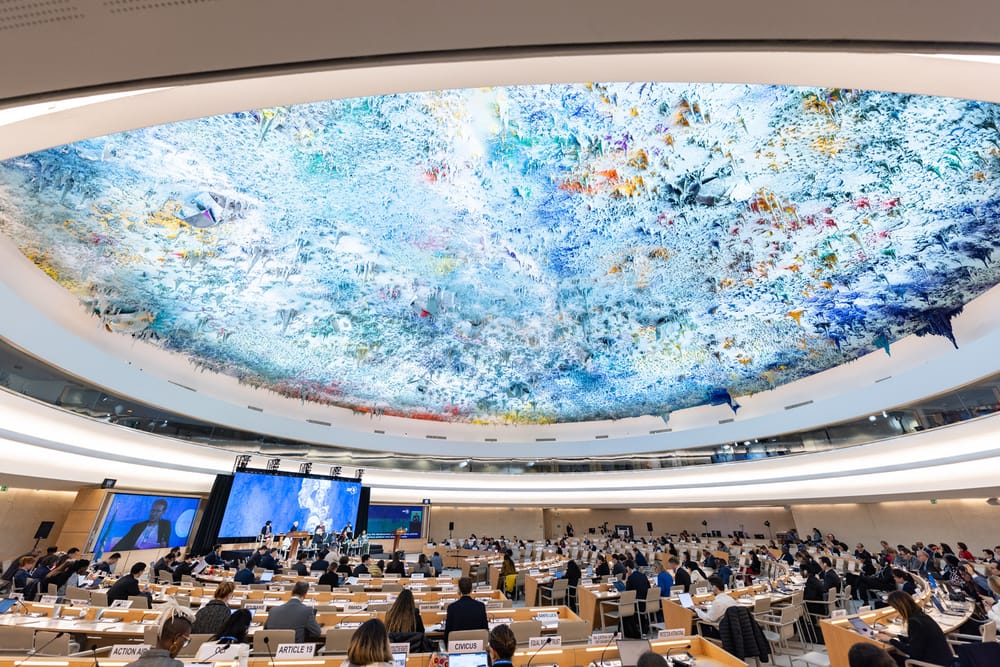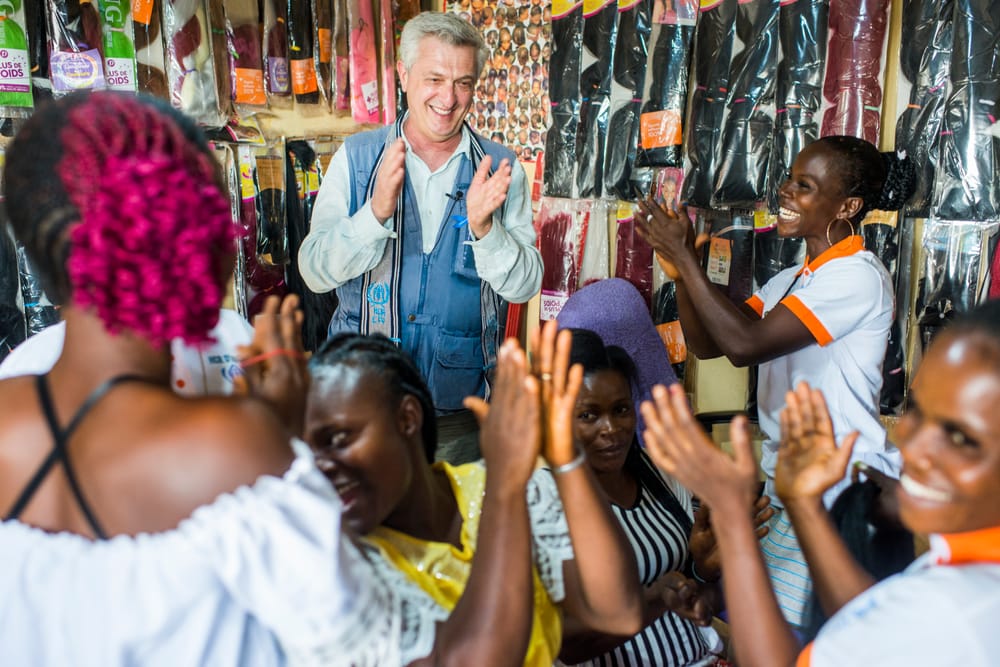By Paola Deda
The power of networks
As the Russia-Ukraine conflict began, it was the mayors of Ukrainian cities touched by the war, who made the news far more than any other government representative. Being closer to the population, the city authorities in Kharkiv, Busrha, Irpin, Mykolaiv, Kyiv, and others, were able to report first-hand the impact of the war on their citizens.
At the second Forum of Mayors meeting held in Geneva in April 2022, the Mayors of Kharkiv and Mykolaiv both participated. It was at this event that a group of Mayors from the region expressed, in an improvised but powerful declaration, their rejection of the war and reiterated their support for Ukraine and its cities.
This episode is just one of many examples highlighting the deep interest that mayors have in being part of the diplomatic machinery.
One of the main tangible outcomes of this specific episode was the interaction between Mayor Terekhov of Kharkiv and Architect Norman Foster, which ultimately resulted in the pro-bono preparation of a new Masterplan for Kharkiv by the Norman Foster Foundation. The plan represents a vision to “build back better”, and contains pilot projects for select key features of the city: heritage, rivers, industry, housing and science.
This initiative propelled and inspired several others, culminating in the Masterplan for Mykolaiv by the One Works Foundation, as well as the project called UN4UkrainianCities by the United Nations Economic Commission for Europe (UNECE), funded by the German Government. This project is tasked with primarily assisting Kharkiv and Mykolaiv, and ultimately all cities in Ukraine with post-war urban planning and resilience building. It is not hyperbolic to suggest that none of this would have happened if the Forum of Mayors had not facilitated these connections.
Towards a ‘de jure’ multilateralism at the UN
While a gathering like the Forum of Mayors undoubtedly prompts interaction and new initiatives, there is also tremendous value in bringing local authorities into United Nations processes.
While a gathering like the Forum of Mayors undoubtedly prompts interaction and new initiatives, there is also tremendous value in bringing local authorities into United Nations processes.
This proposition forms the basis of a newly enlarged multilateralism, which aims to include new actors such as city authorities. Given that national governments are struggling with the multiplicity and multidimensionality in an era of polycrisis, such a move is necessary to address the pressing challenges of a globalised world.
However, how can city diplomacy materialise within the UN, given that it is an intergovernmental process? While the UN is defined as a ‘multistakeholder’ organisation, its main decisions are driven by ‘member states’ and not ‘cities’.
While recognizing the primacy of member states, most UN processes over the years have involved other stakeholders, whether as observers or on the margins of intergovernmental meetings. This has successfully enhanced the voice of civil society, making negotiations open to their important requests and views.
What remains much more complex, and probably under-discussed, is the de jure integration of those actors into the intergovernmental machine. Integrating other actors exposes a large number of strategic as well as practical considerations, ranging from political representation to the more practical issue of the presence and participation of many stakeholders in the same meeting.
Consequently, the integration of non-state actors, including cities and local authorities in UN processes can only be achieved through flexible and ad-hoc solutions. Such solutions must be developed specifically to respond to the needs of a given process, based on its requirements and the stakeholders relevant to that process.
The Forum of Mayors has the potential to grow
It was in the specific context of the UNECE Committee on Urban Development, Housing, and Land Management (CUDHLM) that the Forum of Mayors was conceived. The Forum was forged as a subsidiary body of the Committee, in which mayors participate in their own capacity and not as part of a national delegation or as observers. The Forum was created to allow for the participation of mayors in the work of UNECE and to share their strategic plans, actions and initiatives for addressing local, regional and global challenges such as the implementation of SDGs at the local level. An important objective is achieving coherence and complementarity between the local, regional and global levels “in the furtherance of a stronger, more networked and inclusive multilateral system”. Mayors' inputs are invaluable in this context, as they have added not only their voices but also their concrete recommendations and commitments.
A case in point is in 2020 when Mayors adopted the Geneva Declaration of Mayors. This document identified the main goals for sustainable cities in the region and expressed the commitment of Mayors to reach these goals.
The Declaration was the first document adopted by Mayors in a multilateral context as an active and legitimate part of intergovernmental processes. Overall, the main value of the Forum remains its role as an exchange platform where cities can share, discuss, compare and learn about different experiences and solutions to common challenges.
The Forum in 2023 also included an interregional segment, allowing and facilitating the participation of cities from outside of the UNECE region. This is, in recognition of the fact that the main challenges facing urban environments are truly global in nature. Such an extension of the Forum beyond its initial boundaries is a testament to the fact that the Forum could entertain formal and informal relationships with other global UN processes based in Geneva. The substantive focus of the Forum has also the potential to be enlarged in the future, from a current focus on urban development and planning matters to other development issues and sustainable development goals (SDGs).
The international community in Geneva should explore the current format and entertain discussions on how the Forum of Mayors could eventually evolve and grow.
Looking ahead to 2024 and beyond, the Forum is still in its nascent phase, trying to define and understand its possible global role and impact. However, it is worth mentioning that the 2024 edition of the Forum will be organised one week after the Summit of the Future, a gathering of world leaders in New York to discuss how to accelerate progress towards a fairer, more peaceful and sustainable world, and will serve as “Cities Summit of the Future”. The meeting will consider the results of the New York Summit - to be summarised in the Pact of the Future - and will consider how the Pact offers opportunities for cities and local authorities to contribute to global development. This broad scope for the Forum in 2024 highlights the potential that this body has to address the localization of all SDGs, in a broad dialogue that brings mayors to the centre of the world agenda. The international community in Geneva should explore the current format and entertain discussions on how this body, now ‘small’ in size and scope, could eventually evolve and grow. The mayors in 2024 will test how to utilise the Forum further to interact with national authorities: the opportunity of the Cities Summit of the Future should be seized by all UN agencies present in Geneva, as discussions will go well beyond urban development and show in practice how a new multilateralism, which embraces cities, would work in practice.
About the author
Paola Deda is currently the Director of the Forests, Land and Housing Division at the United Nations Economic Commission for Europe in Geneva.
The opinions expressed in this publication are those of the authors. They do not purport to reflect the opinions or views of the Geneva Policy Outlook or its partner organisations.





